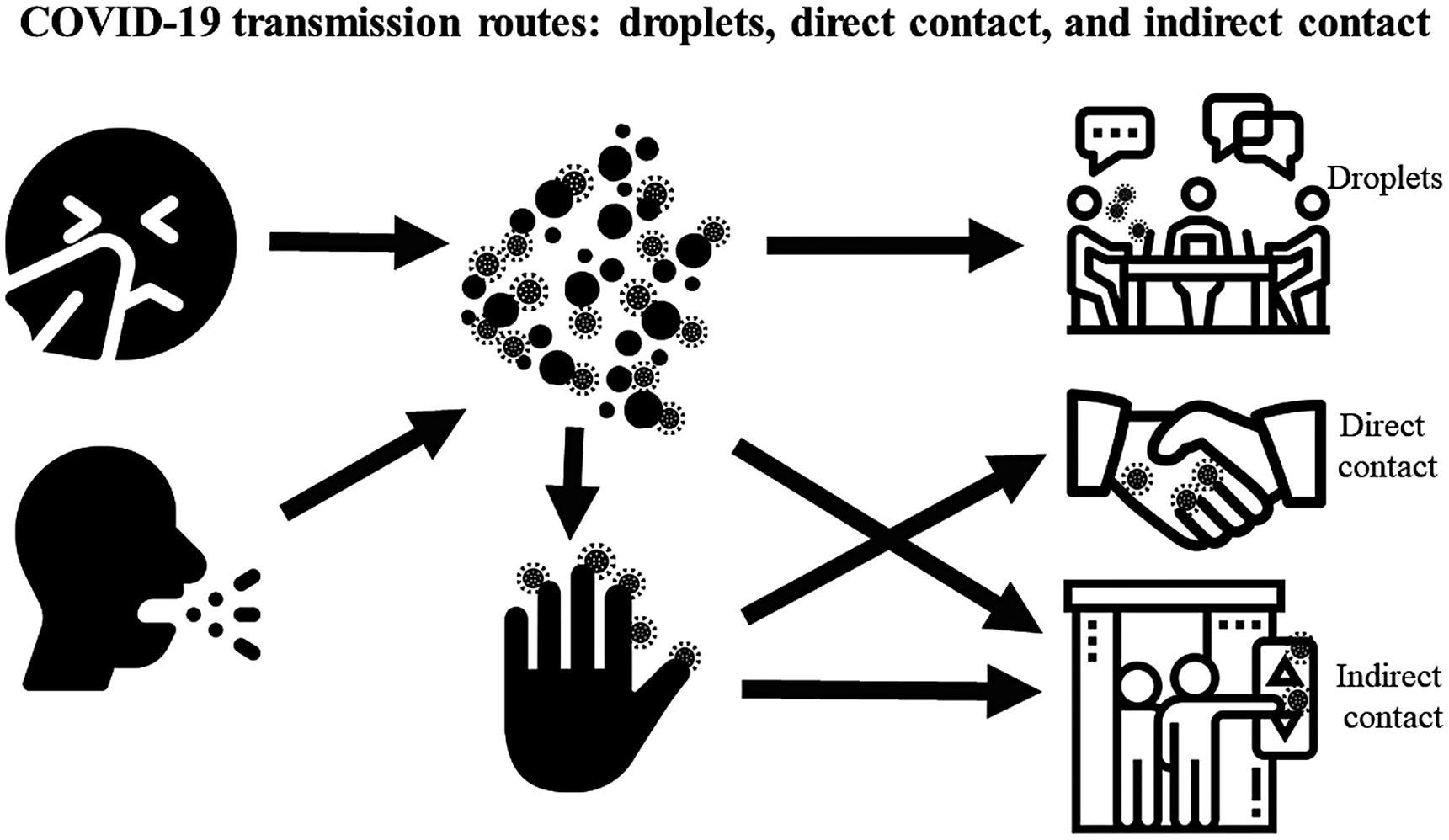Most of the time, it spreads when a sick person coughs or sneezes. They can spray aerosol droplets 6 feet away or even further. If you breathe them in or swallow them, the virus can get into your body. Some people who have the virus don't have symptoms, but they can still spread the virus.

Droplets or aerosols - This is the most common transmission. When an infected person coughs, sneezes, or talks, droplets or tiny particles called aerosols carry the virus into the air from their nose or mouth. Anyone who is within 6 feet of that person can breathe it into their lungs.
Airborne transmission - Research shows that the virus can live in the air for up to 3 hours. It can get into your lungs if someone who has it breathes out and you breathe that air in. Experts are divided on how often the virus spreads through the airborne route and how much it contributes to the pandemic.
Surface transmission - A less common method is when you touch surfaces that someone who has the virus has coughed or sneezed on. You may touch a countertop or doorknob that's contaminated and then touch your nose, mouth, or eyes. The virus can live on surfaces like plastic and stainless steel for 2 to 3 days. To stop it, clean and disinfect all counters, knobs, and other surfaces you and your family touch several times a day.
Fecal-oral - Studies also suggest that virus particles can be found in infected people's poop. But experts aren't sure whether the infection can spread through contact with an infected person's stool. If that person uses the bathroom and doesn't wash their hands, they could infect things and people that they touch.
Researchers say that on average, every person who has COVID-19 will pass it on to 2 or 2.5 others. One study says that number is even higher, with one sick person infecting between 4.7 and 6.6 others.
A study shows that SARS-CoV-2 can last for several hours on various types of surfaces.
- Copper (pennies, teakettles, cookware): 4 hours
- Cardboard (shipping boxes): up to 24 hours
- Plastic (milk containers, detergent bottles, subway and bus seats, elevator buttons):2 to 3 days
- Stainless steel (refrigerators, pots and pans, sinks, some water bottles): 2 to 3 days
Research has found that although children tend to get infected with the coronavirus less often and have milder symptoms than adults, they can still catch and spread it. Some have become seriously ill and even died.
